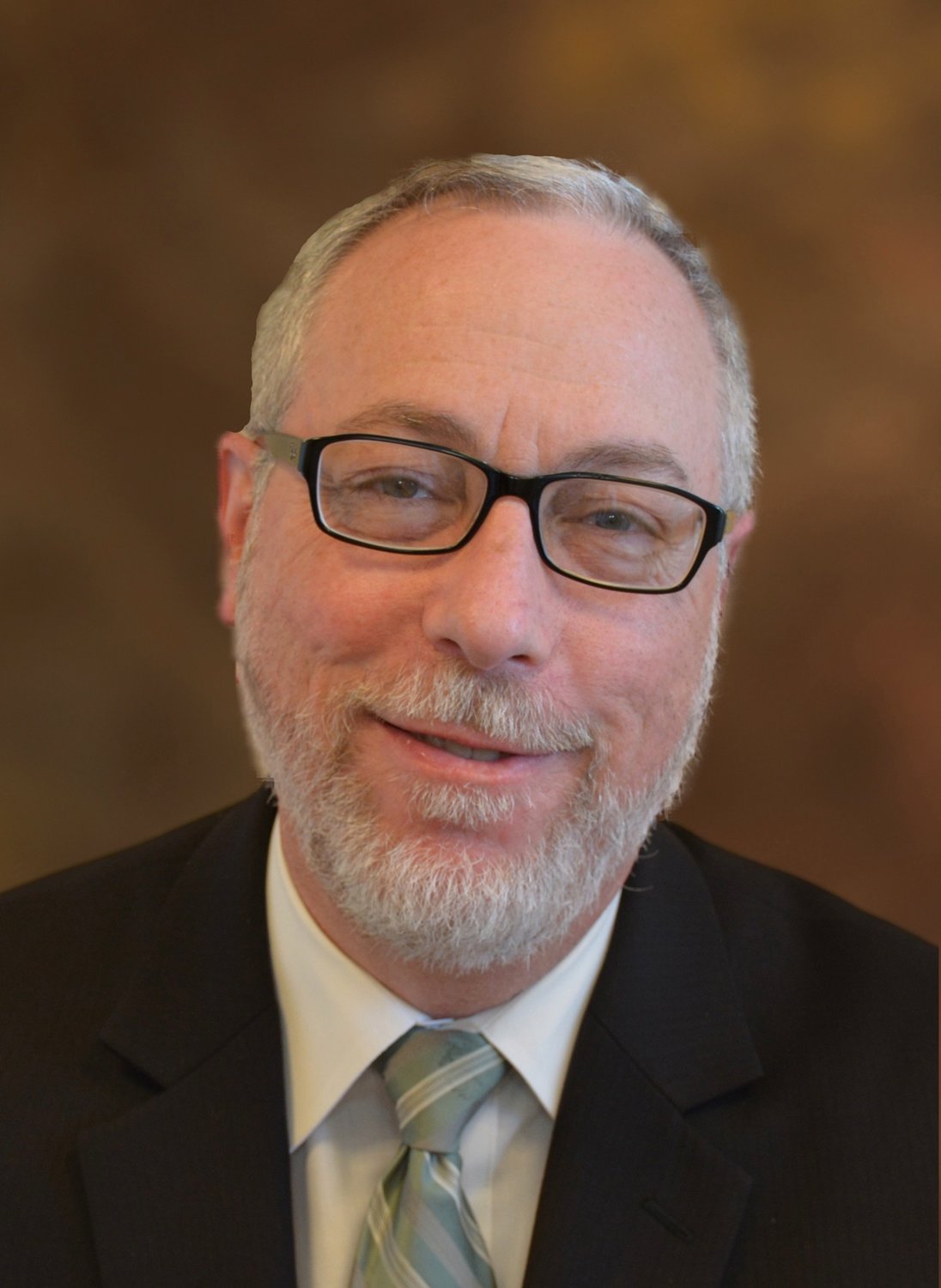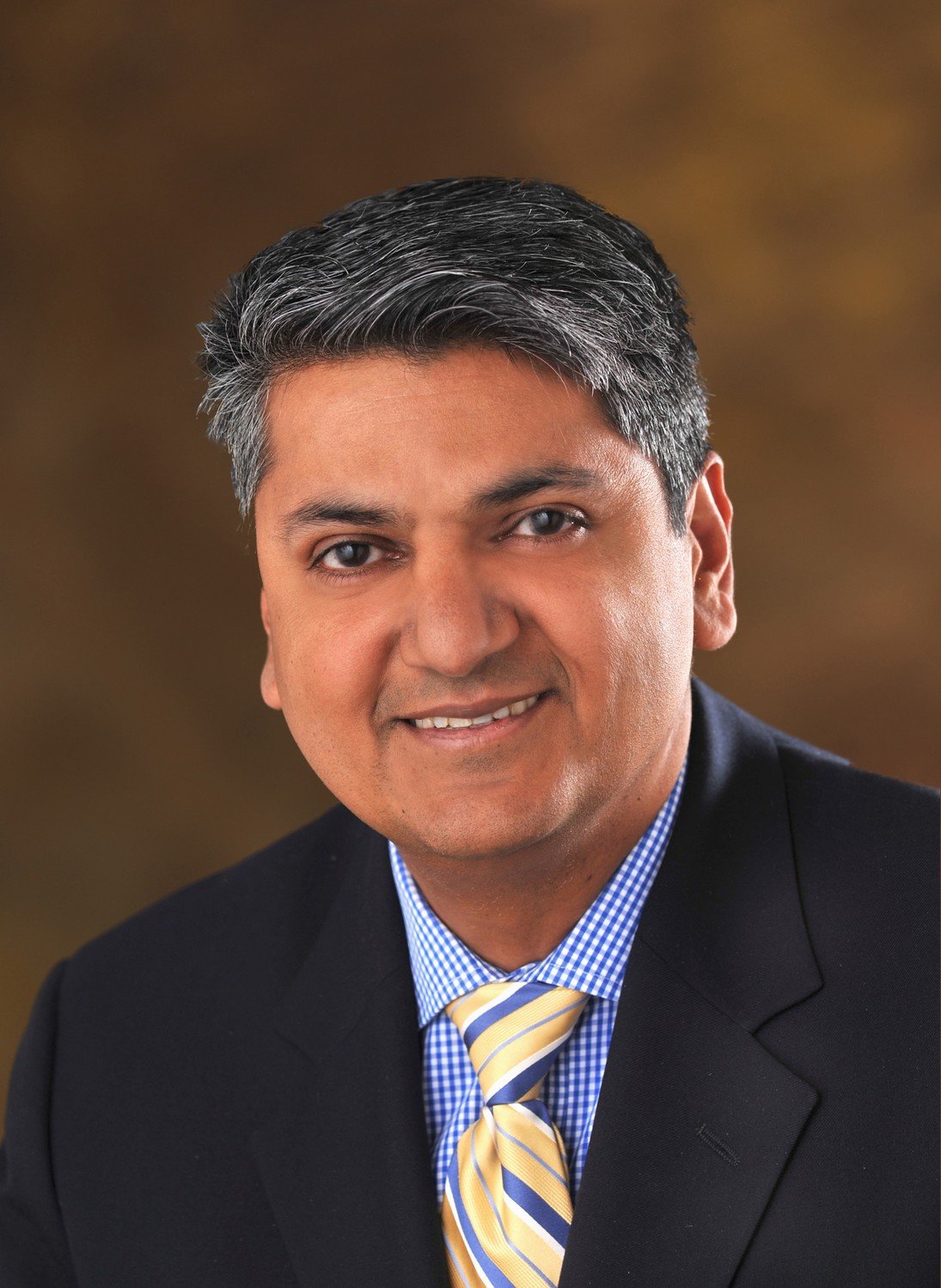Doctors from Mount Sinai South Nassau hospital in Oceanside weigh in on vaccines
With the number of Covid-19 vaccinations increasing at Mount Sinai South Nassau hospital and the number of coronavirus cases decreasing, physicians and administrators at the facility are making a push for more county residents to get inoculated.
“Anyone out there who’s vaccinated who knows somebody who’s hesitant, if they could get two people who are hesitant to get vaccinated, we’ll give them that challenge,” the hospital’s chief medical officer, Dr. Adhi Sharma, said, “and hopefully we can get everyone a shot in their arm.”
Sharma appeared with Dr. Aaron Glatt, the chair of MSSN’s Department of Medicine and chief of infectious diseases, and Joe Calderone, senior vice president of corporate communications, on Facebook Live last Thursday, fielding questions and addressing misconceptions about the vaccines.
It was the hospital’s 28th such event since the pandemic peaked in March 2020, and the facility has inoculated more than 32,000 patients and staff members since getting its first doses in mid-December. There have been over 146 million vaccinations administered in the U.S. and more than 1 billion worldwide. Last week, MSSN had just 13 patients with Covid-19, and the count had been below 20 for a full week.
“It seems we’re really beginning to turn a corner with Covid,” Calderone said.
Nonetheless, Glatt and Sharma both urged residents to remain vigilant, even as the number of cases drops and Centers for Disease Control and Prevention guidelines loosen. People should still wear masks in public and protect themselves, their families and their neighbors, they said, and those who haven’t been inoculated should make an appointment at MSSN’s vaccination center, at 519 Merrick Road in Rockville Centre, which has plenty of openings and can be booked through the hospital’s website. Additionally, the facility has partnered with the Town of Hempstead for a “vaxmobile,” which visits various communities to help inoculate those who struggle to get around.
Glatt noted that the data is constantly changing, and that the CDC decision to ease up on mask wearing when in small gatherings of vaccinated people was based on sound science. The CDC, he explained, looks at data and takes in account the vaccination rate before making any changes. Glatt called it “critically important” for the public to understand that it controls these factors based on its behavior, and emphasized that it is vital to get vaccinated.
He said he agreed with the guideline that if fully vaccinated people who know one another are around one another and outdoors, they don’t need to wear masks. He cautioned, however, that masks are recommended for large public events, even those that are outdoors.
The doctors also addressed the recent issues with the Johnson & Johnson vaccine, whose distribution was paused by the federal government after blood clots were found in a small number of patients. Glatt said the vaccine was “wonderful,” and that there was a small percentage of people who didn’t respond to it, which led to its temporary pause.
“It is an undisputable fact that you won’t die from Covid if you get that vaccine,” Glatt said. “The vast majority of people will not get very sick from Covid, and if they do, they won’t die. No vaccine or medicine is perfect. People have risks with all kinds of medications, and each has potential side effects.”
The risks were mostly found in women ages 18 to 48, Glatt said, and fewer than 20 people out of 8 million who received Johnson & Johnson shots developed complications. He said that anyone who was concerned could get the Moderna or Pfizer doses, and that the overall risk of complications from a vaccine pales in comparison to the risks of contracting the coronavirus.
Sharma and Glatt also addressed issues with pregnancy, noting that data has proven that pregnant women can safely get vaccinated. Glatt cited the New England Journal of Medicine, which published a study showing that there was no difference between the outcomes of 35,000 vaccinated pregnant women and a control group.
“That should be really reassuring to pregnant women,” Glatt said, “because pregnancy and Covid don’t go well together, but pregnancy and a Covid vaccine go very well together.”
The doctors said that the vaccine has also been shown to be safe in children and teens aged 12 to 15, and they hoped to start inoculating them soon. However, there is “no magic number” for herd immunity, Sharma said, adding that the goal is to get every eligible person vaccinated, and inoculate upward of 90 percent of the population to stop the illness from spreading.
Glatt said that even though things change on a regular basis, the vital thing is for people to follow guidelines, put safety first and get vaccinated.
“It’s critically important for everybody out there listening to understand that we control all these factors,” he said. “It’s not the government, the county executive or the hospital. It’s what’s going on out there, and the vaccines have allowed the CDC to say deaths across the country are down, thank God, hospitalizations across the county are down, especially in older, high-risk people, and we have to stay vigilant.”

 50.0°,
Fair
50.0°,
Fair 







